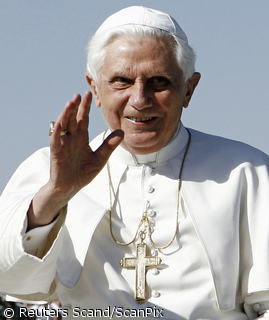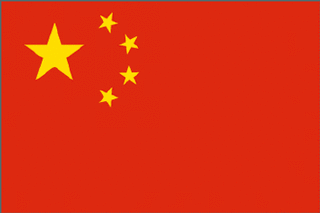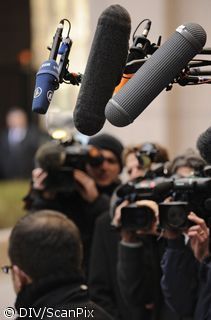European Union supporters in Latvia and Estonia expressed concern Thursday about a new survey pegging their countries as the most EU-skeptical in Europe
Published:
4 August 2003 y., Monday
European Union supporters in Latvia and Estonia expressed concern Thursday about a new survey pegging their countries as the most EU-skeptical in Europe—findings that come just two months before both Baltic states hold referendums on membership. A mere 32 percent of Estonians and 37 percent of Latvians agreed entry would be "a good thing," making them the most pessimistic of those questioned in the EU study released Wednesday. By contrast, 72 percent of Cypriots and 61 percent of Poles said joining would be good for them.
Latvia and Estonia will be the last of 10 EU candidate countries to put the issue of entry to a vote—and observers say there's now a chance that one or both nations could become the first to reject membership in Europe's most powerful multilateral club.
"People are afraid, they don't know what to believe and they're confused," said Pille-Mai Helemae, spokeswoman for the high-profile "Yes to the EU" group in Estonia. "It's going to be a hard fight. But in the end, I'm sure enough people will see more pros than cons to membership." Confusion about the EU was illustrated in the biannual Eurobarometer _ which questioned 1,000 people in each candidate nation in May—with 62 percent of Latvian and 71 percent of Estonian respondents saying they were either poorly informed about the accession process or not informed at all.
The Czech Republic, Hungary, Lithuania, Poland, Slovakia, Slovenia and Malta have already approved EU referendums, most by wide margins. Cyprus is leaving it's decision to lawmakers. If Estonia and Latvia pass their plebiscites on Sept. 14 and Sept. 20 respectively, they would join the EU together with the other candidates in 2004.
Virtually all top leaders in Estonia and Latvia have been pro-EU since the Baltic Sea nations regained independence—arguing that entry will raise their nations international stature, forge vital European trade links and boost living standards.
But official enthusiasm has never been matched outside the halls of power, with many Estonians and Latvians fearing a loss of sovereignty to the EU. Anti-EU groups compare what they say is an overly centralized EU with the U.S.S.R.; one of their symbols is an EU flag stamped with a Communist hammer and sickle.
If the results of the latest survey spooked EU supporters, they delighted opponents. "If you're a EU supporter, I believe the picture is even blacker," said Uno Silberg, who heads Estonia's "No to the EU Movement." "We're confident the referendum will fail."
Šaltinis:
balticsww.com
Copying, publishing, announcing any information from the News.lt portal without written permission of News.lt editorial office is prohibited.
The most popular articles
 Pope Benedict on Sunday created five new saints.
more »
Pope Benedict on Sunday created five new saints.
more »
 The boat - a replica war junk from the Ming Dynasty - was on the last leg of a journey across the Pacific when the Captain said disaster struck.
more »
The boat - a replica war junk from the Ming Dynasty - was on the last leg of a journey across the Pacific when the Captain said disaster struck.
more »
 In three resolutions adopted at the end of this week's Strasbourg plenary sessions, the European Parliament strongly condemns discrimination and violence against women in Afghanistan, voices concern at the possible closure of Camp Ashraf, Iraq, and expresses support for the Special Court of Sierra Leone.
more »
In three resolutions adopted at the end of this week's Strasbourg plenary sessions, the European Parliament strongly condemns discrimination and violence against women in Afghanistan, voices concern at the possible closure of Camp Ashraf, Iraq, and expresses support for the Special Court of Sierra Leone.
more »
 Using a mobile phone is about to get cheaper again for the tens of millions of people who cross EU borders every day.
more »
Using a mobile phone is about to get cheaper again for the tens of millions of people who cross EU borders every day.
more »
 The spread of Weapons of Mass Destruction and their means of delivery is one of the most serious international stability and security threats according to the Foreign Affairs Committee.
more »
The spread of Weapons of Mass Destruction and their means of delivery is one of the most serious international stability and security threats according to the Foreign Affairs Committee.
more »
 In eastern China's Weifang City, thousands gather to celebrate the largest international kite festival in history.
more »
In eastern China's Weifang City, thousands gather to celebrate the largest international kite festival in history.
more »
 A swarm of photographers and journalists surrounded the house of Susan Boyle in Blackburn, Scotland.
She's become an internet sensation and it all started on a little show called “Britain's Got Talent”.
more »
A swarm of photographers and journalists surrounded the house of Susan Boyle in Blackburn, Scotland.
She's become an internet sensation and it all started on a little show called “Britain's Got Talent”.
more »
 EU keeps consumers safe with alert system for dangerous products.
more »
EU keeps consumers safe with alert system for dangerous products.
more »
 Driving the car off the streets - thousands of cyclists reclaim the streets of Manila.
more »
Driving the car off the streets - thousands of cyclists reclaim the streets of Manila.
more »
 One hundred young creators and innovators designated by European regions gather today in Brussels to mark the European Year of Creativity and Innovation 2009.
more »
One hundred young creators and innovators designated by European regions gather today in Brussels to mark the European Year of Creativity and Innovation 2009.
more »